Jun 17, 2025 11:12 AM
Kandace Springs Sings Billie Holiday
When it came time to pose for the cover of her new album, Lady In Satin — a tribute to Billie Holiday’s 1958…
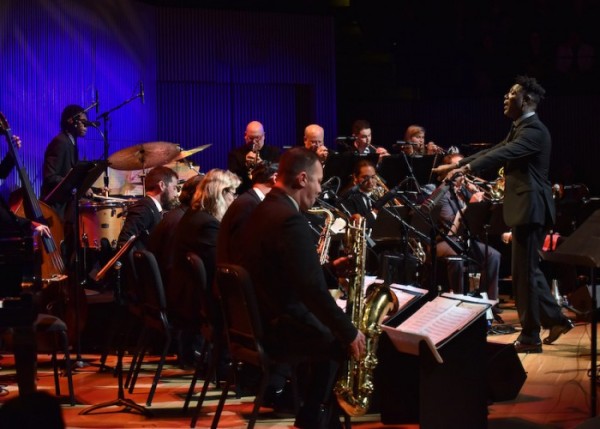
Bassist and composer Marcus Shelby says his career has been shaped by performers and institutions in the Bay Area.
(Photo: Ronald Davis)On the final evening of a four-night run as resident artistic director at San Francisco’s SFJAZZ at the end of May, Marcus Shelby was visibly exuberant.
Stylishly dressed and elegantly poised, the charismatic 53-year-old bass player, composer and educator presented “Ellington: Blues and Swing,” a show featuring the 16-piece Marcus Shelby Orchestra, which the bandleader founded 20 years ago.
The evening included Shelby’s original compositions and arrangements of standards, some of which are on his latest album, Transitions. Using his entire body to conduct the big band, San Francisco-based Shelby jumped, danced and waved his arms to inspire the band during a long first set, which was dominated by Ellington tunes. Violinist Mads Tolling displayed considerable chops, and offered smooth, lyrical phrases on tunes like “Mood Indigo” and “On A Turquoise Cloud.” The second set featured a trio format with pianist Adam Shulman, drummer Genius Wesley and Shelby on bass, backing up guest vocalist Kenny Washington on classic Ellington tunes like “Take The A Train” and “In A Sentimental Mood.” They were followed by guest vocalist Faye Carol (with pianist Joe Warner), a longtime collaborator and mentor, who opened with “The Maestro,” by Shelby, and closed out the set with flamboyance on “It Don’t Mean A Thing If It Ain’t Got That Swing.”
A well-known figure in the Bay Area arts community, Shelby is involved in a wide variety of activities and organizations, and works as an educator at the San Francisco Community Music Center and the Stanford Jazz Workshop, as well as serving as a teaching artist at the Healdsburg Jazz Festival and the San Francisco Jazz Festival.
The following has been edited for length and clarity.
Was there a theme for your four-day artist residency at SFJAZZ?
The whole idea of the residency was to celebrate the Bay Area, and that’s why I used primarily Bay Area artists. With this residency you can get top artists from all over the world to perform with you, but my career has been defined by the artists and the institutions I have worked with here that have supported me.
I got to work with Angela Davis, who is a local entity, and who wrote the most articulate treatise on the history of the blues and black feminism. It was an excellent opportunity to celebrate not only her, but to work with three of our great local vocalists—Paula West, Tiffany Austin and Kim Nalley. And I was also able to get Terri Lyne Carrington and Tia Fuller. These musicians are not only fierce in their music, but in their activism, and that’s what this whole thing was about.
What was your inspiration for Transitions?
For this record, I wanted to document what the band had been doing for the last six years. It is a representation of what it might be like to come and hear the Marcus Shelby Orchestra. The whole record is structured like a live concert, where we might come out and the band plays two numbers, and then we bring out our featured vocalist and we do five standards. And then we do an original suite—four pieces from my “Black Ball Suite,” which is all about baseball and the blues and how things changed over time—there are all these relationships that deal with migration and transition, and the birth of the blues and Negro League Baseball.
Duke Ellington has been a big inspiration for you. Why do you think he’s still so important?
Duke Ellington wrote about people, places, events—he was just one of the most inspirational figures I know. Wynton Marsalis kind of did the same thing throughout his career, creating these large-scale works. They were inspirational in their ambition of how you can use history and use music and use this language called the blues and swing to create music that informs, inspires, entertains, educates. And in our music, the big band format is the large canvas. I needed to have a band to learn to play Duke Ellington’s music, so that’s all we did in the beginning. I collected over 200 Duke Ellington scores and over 100 Duke Ellington charts.
How do you see your role as the conductor?
I’m appreciative of the opportunity to have this band. I used to play bass in my band, but now I primarily just conduct, and that’s been a big thrill. It’s a whole other skill and has allowed me to be the coach that I want to be, and inspire and try to get the most out of these compositions. There’s nothing more enjoyable than being in front of my big band and yelling and screaming, and laughing and telling jokes.
You want good players, and you want to build a good culture and environment, just like a team. And that starts with the leader. So, I have to walk the walk and talk the talk, and treat every member of that band with the ultimate respect. DB
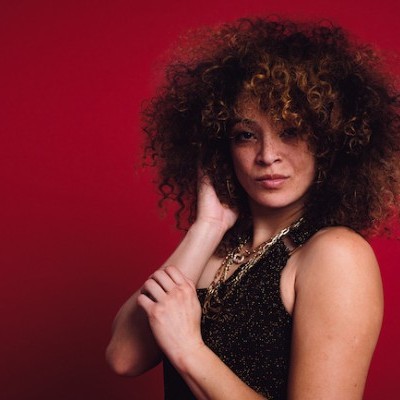
“There’s nothing quite like it,” Springs says of working with an orchestra. “It’s 60 people working in harmony in the moment. Singing with them is kind of empowering but also humbling at the same time.”
Jun 17, 2025 11:12 AM
When it came time to pose for the cover of her new album, Lady In Satin — a tribute to Billie Holiday’s 1958…
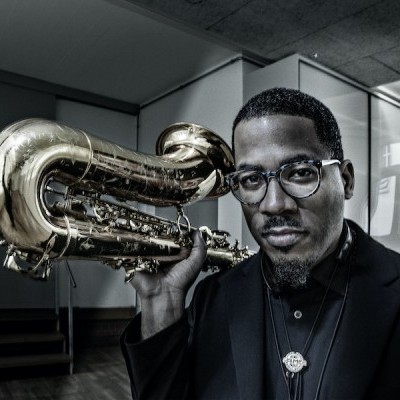
James Brandon Lewis earned honors for Artist of the Year and Tenor Saxophonist of the Year. Three of his recordings placed in the Albums of the Year category.
Jul 17, 2025 12:44 PM
You see before you what we believe is the largest and most comprehensive Critics Poll in the history of jazz. DownBeat…
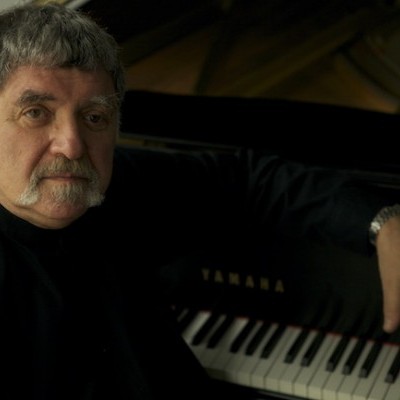
Galper was often regarded as an underrated master of his craft.
Jul 22, 2025 10:58 AM
Hal Galper, a pianist, composer and arranger who enjoyed a substantial performing career but made perhaps a deeper…
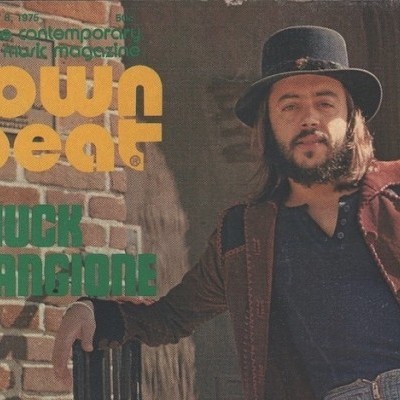
Chuck Mangione on the cover of the May 8, 1975, edition of DownBeat.
Jul 29, 2025 1:00 PM
Chuck Mangione, one of the most popular trumpeters in jazz history, passed away on July 24 at home in Rochester, New…
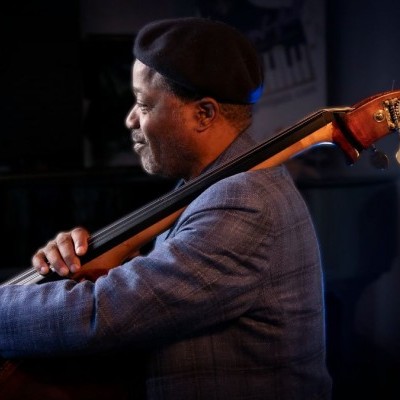
“Hamiet was one of the most underrated musicians ever,” says Whitaker of baritone saxophonist Hamiet Bluiett.
Jul 8, 2025 7:30 AM
At 56, Rodney Whitaker, professor of jazz bass and director of jazz studies at Michigan State University, is equally…